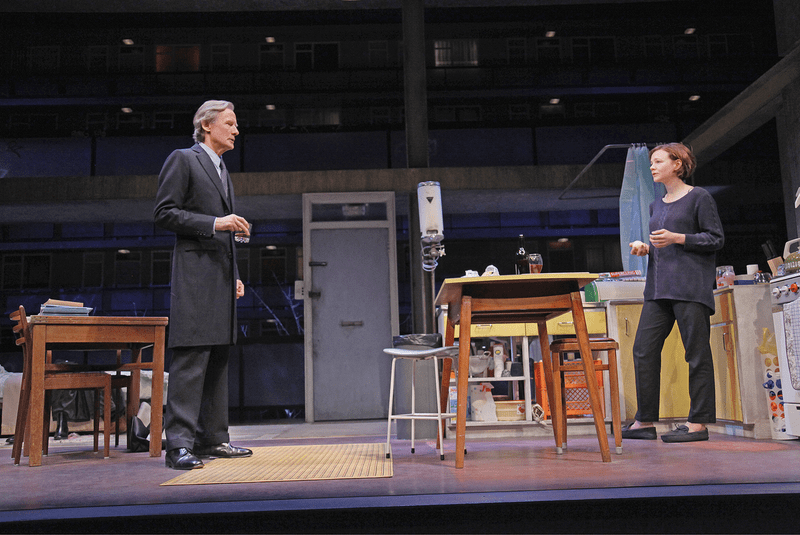
Opposites attract. That's what people say. But can opposites make a life together?
The question is at the heart of British playwright David Hare's 1995 play, Skylight, now on Broadway after a London revival. It's been absent from the stage for almost 20 years, but this is a good moment for it to appear again — because the couple here, Kyra and Tom, are opposites in ideology, not temperament. And the issue they feel very differently about is income inequality — which is currently at the center of public debate.
The fifty-something Tom (Bill Nighy) is a rich restaurant owner with a country house and chauffeur. The thirty-something Kyra (Carey Mulligan) is an idealistic schoolteacher who lives and works in a neglected London neighborhood. For three years, they were lovers.. .until his wife learned of his affair. But now his wife is dead and Tom has come on a chilly night to see if Kyra will come back to him and join him in luxury.
Her yes-or-no is not what's interesting, though it drives the narrative. What's interesting is the gradual clarification of their deeply-held points of view and the surprising reasons why they hold them. And the more they clarify, the clearer it becomes that they can never be together. Not because they don't suit each other (they do). Not because they're not in love (they clearly still are). But because they have both dug in hard into their lives.
They are living their principles. And those principles are simply incompatible. Tom came from the lower classes and is proud of his rise. He sees his wealth and authority as something he has earned. He gets pleasure from lording them over others. Kyra came from privilege and her guilt motivates her to try to be one of the people she is committed to helping. Her apartment has no heat, no door buzzer. For her, suffering is righteousness.
Nighy and Mulligan play their characters with precision; this is a love story as chess match, where each move has a counter. Nighy in particular is prince of the telling gesture. He uses the ruthless alignment of the ends of a towel and the restless nudge of a chair into its proper place to paint a picture of a man who is not used to asking for anything.
Mulligan plays Kyra as a seemingly vulnerable woman who is merciless in her own way, barely bending when her ex-lover appeals to warmer feelings like love and friendship. She only warms up when she's visited by Tom's son, the teenage Edward. They understand each other.
Kyra thinks Tom is ignoring the plight of the underclass. He thinks she is mixing up doing good with being poor. The thing is, they're both right. And that is what makes this play worth seeing.
